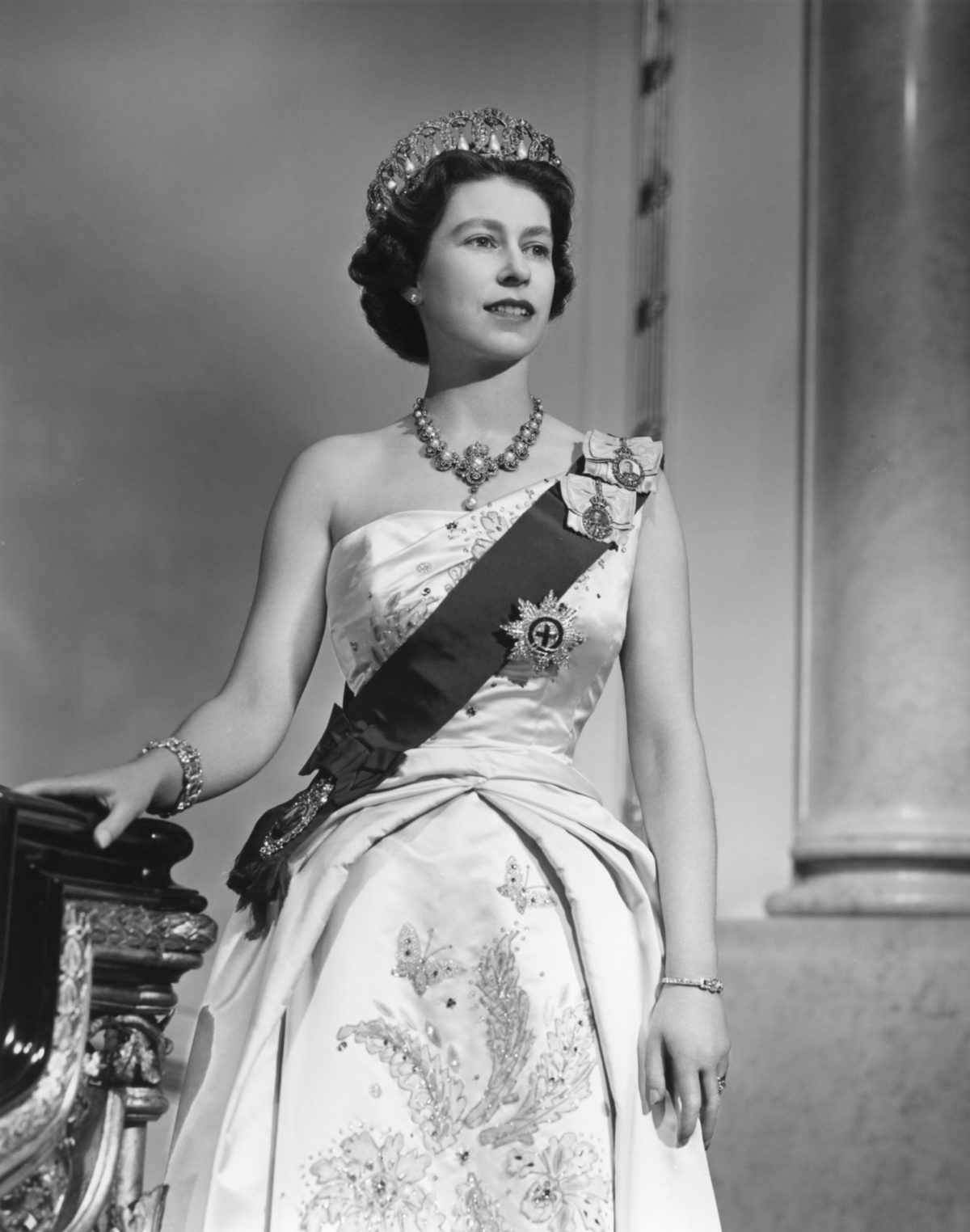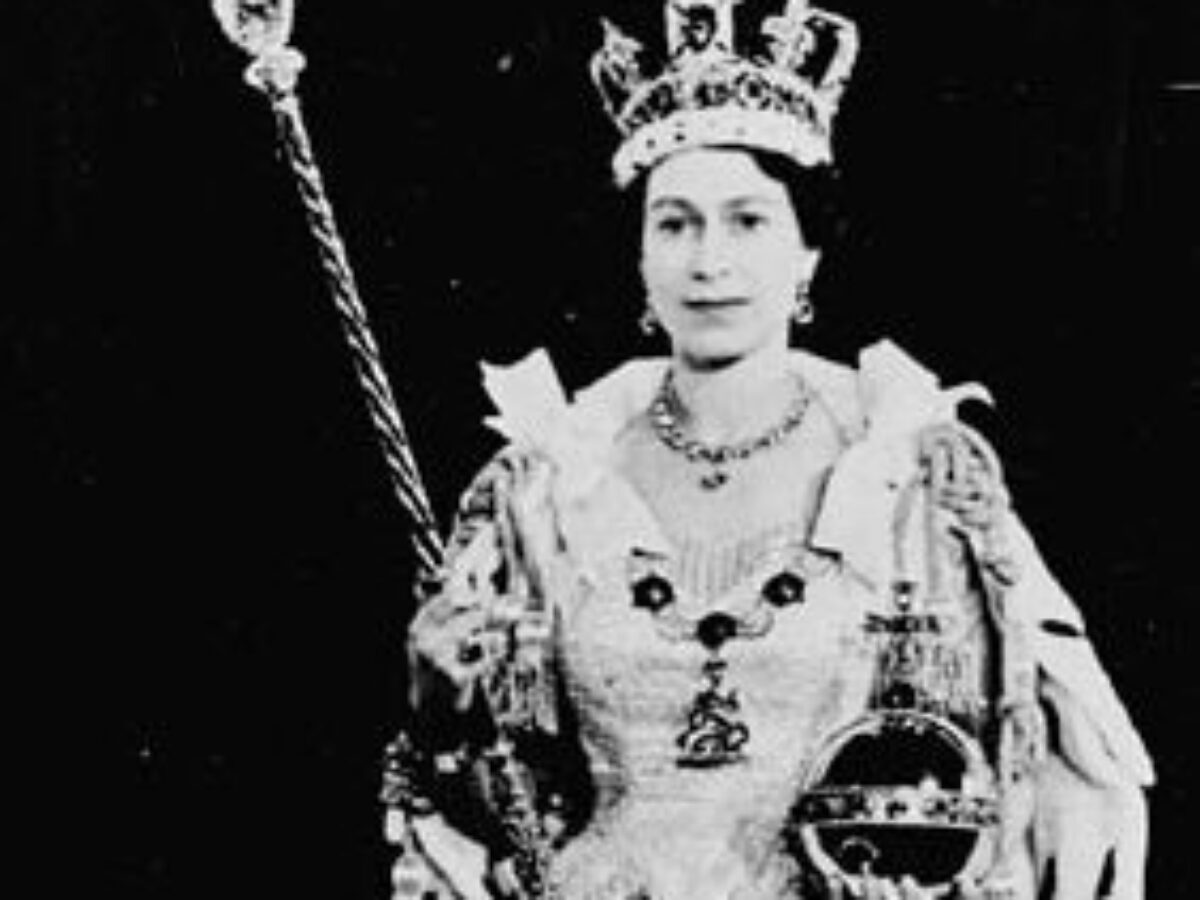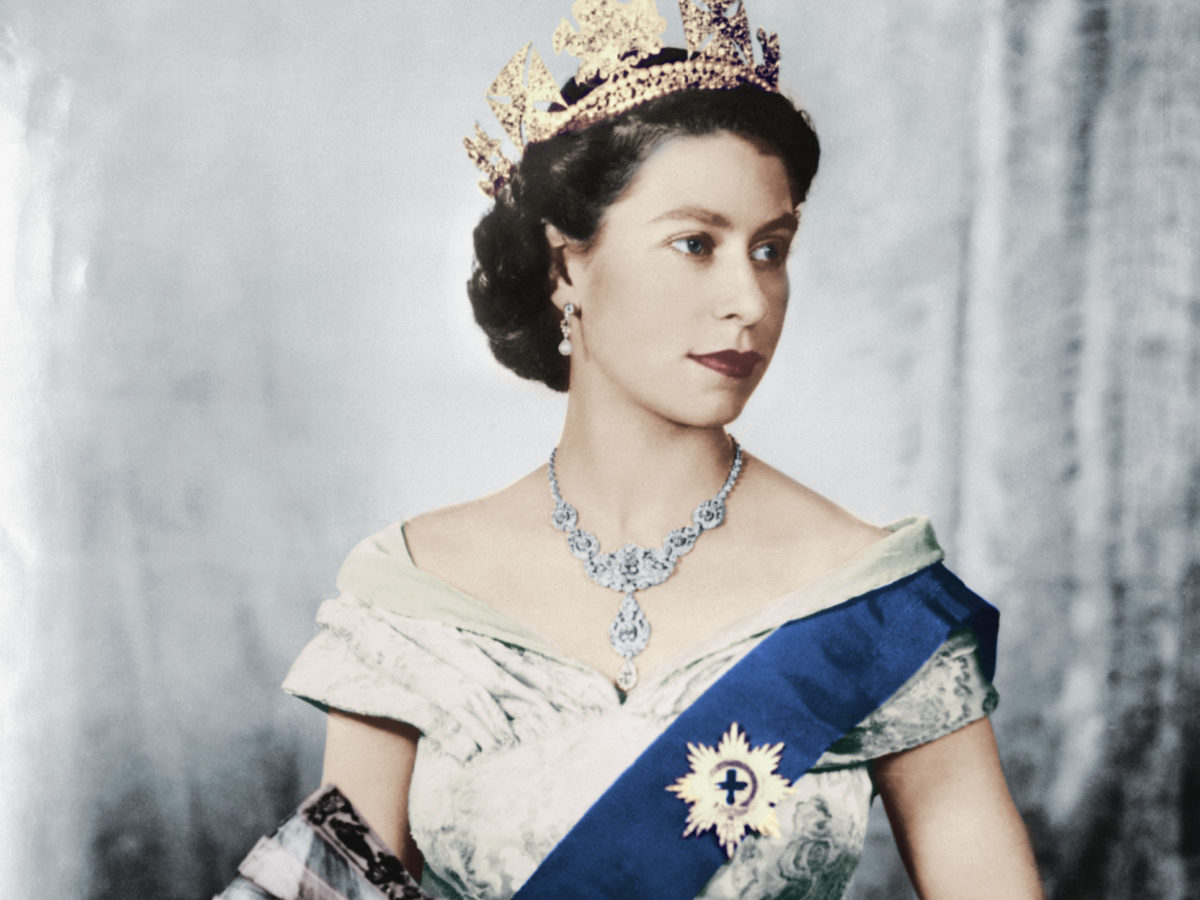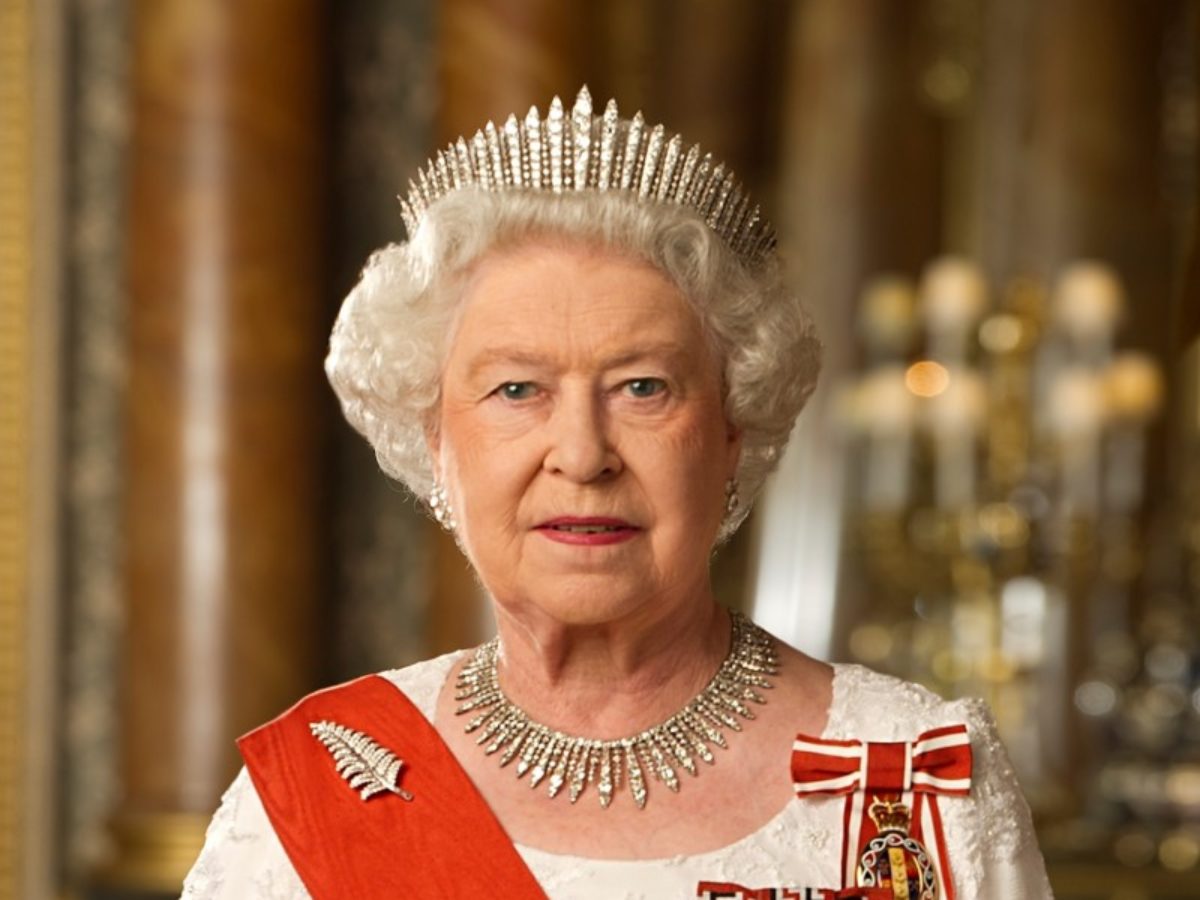Retired Capt. Andrew Clark of the Royal Warwickshire Regiment recalled the day that Queen Elizabeth II’s 70-year-reign as British monarch all began — and the role he played himself. When the queen was crowned on June 2, 1953, he marched in the procession.
Clark, born in Coventry in 1934, was called up for National Service in November 1952.
“At that time when we joined up, we were due to serve two years with the colours — that’s full time military service – and 3 ½ years on reserve, and so that’s how the whole thing kicked off,” he said.
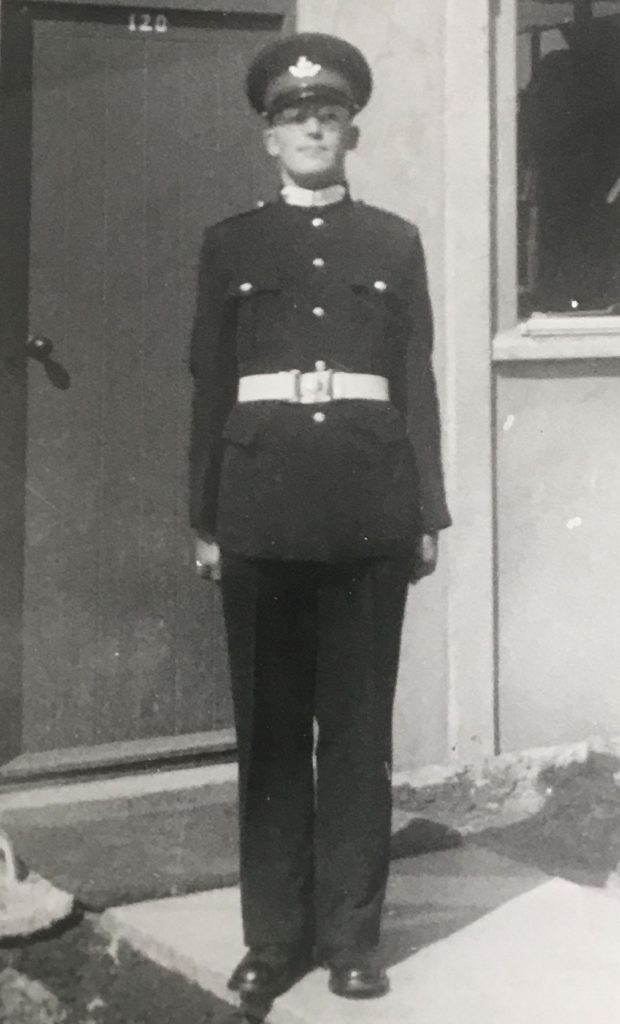
Marching At the Coronation
Serving with the Royal Warwickshire Regiment, he was selected for infantry officer cadet school and was participating in a 16-week course when he was chosen to march in the coronation.
“I just happened to be picked out,” he said. “We went on Sunday by train down to London and stayed in the Mons Officer Cadet School in Aldershot because next morning we needed to train how to march 12 abreast and how to get through Marble Arch. That all happened on the Monday. The next day was the coronation itself.”
He estimated that attendees of the coronation ceremony were in Westminster Abbey by 6:30 a.m. The troops themselves arrived later.
“We were actually not required in London until the queen was crowned — that was the time we were brought up to attention,” he said. “We had to be there.”
Clark recalled that the queen stopped for lunch before the procession to Buckingham Palace. The soldiers had lunch supplied for them.
“There was a famous chain of cafes called Lion’s Corner House, and they provided a packed lunch for us — what I distinctly remember was two barley sugars!”
Much like the Platinum Jubilee festivities in 2022, the coronation procession drew massive crowds and wild fanfare. Although it rained in the afternoon, Clark said, the weather didn’t dampen people’s spirits.
“We were supporting her. Huge numbers of people lined the route. We hadn’t really had anything like that before, even for the wedding,” he said.
“It was one of my proudest moments. Not many people can say they actually physically marched in the coronation,” he said. “I marched in the coronation representing infantry officer cadets at that point in time.”
Recommended for you
Remembering Prince Philip and George VI
Clark was commissioned on Aug. 1, 1953 into the Royal Warwickshire Regiment. Both of his parents were doctors — his mother an ophthalmic surgeon and his father a general practitioner. His paternal grandfather was a master tailor who worked on behalf of Hugh Cecil Lowther, the fifth earl of Lonsdale. His maternal grandfather was a missionary and physician.
“Within my family, without realizing it, I do inherit traditions of service,” he said.
He was a child during World War II, and was kept safe from German bombings at boarding school in Wales. He recalled a time when royal events were more interwoven with daily life, such as the occasion of Princess Elizabeth’s marriage to Prince Philip on Nov. 20, 1947. Then attending Bromsgrove school in Worcestershire, he and other students were permitted to go home for the occasion.
“Just like this weekend [for the Platinum Jubilee], there was an extra holiday to mark that wedding,” he said. “Though I had already had seven years of boarding and was quite used to being a boarder, that was a very great relief to me.”
He also vividly remembered the death of King George VI. He and fellow Bromsgrove students gathered for a solemn memorial at their school chapel, which included a memorial built to commemorate all the boys who’d been killed in World War I.
“When we heard that King George VI had died, we went to a longer service at chapel and we sang this hymn that still sticks in my mind: “The strife is o’er, the battle done,” he said. “It was a very distinctive and memorable service for him.”
Military Service in Korea and Egypt
As a soldier, Clark deployed to Korea on Sept. 20, 1953, at age 19, setting sail from Southampton. Initially the troops were held back in Hong Kong to abide by the terms of the armistice signed on July 27, 1953. He did eventually travel to Korea and was stationed below the 38th parallel.
“There were a lot of American troops there and they had some very good rations. But we [British] had access to alcohol — gin, whiskey and things,” he said. “We would trade our gin and alcohol for wonderful rations.”
He expressed great admiration for the people of South Korea.
“It gives me enormous pride that here was this nation, which we eventually came home from, with not a building standing, and it subsequently developed from an aid-borrowing nation into an aid-giving nation,” he said. “South Korea rehoused its citizens and got its industry going. They have even run the G-7 and the winter and summer Olympic games. It’s just extraordinary.”
After Korea, Clark deployed to Egypt, arriving at Port Said after a long journey by ship and being assigned to guard a section of the Suez Canal. He met Field Marshal Bernard Montgomery there.
“Monty actually came to meet us in Egypt in July 1954. It was the first time he’d been in the Middle East since the end of the war,” he said. “There was a special parade for him.”
Clark, who studied Latin in school, associates a quote from the first book of Virgil’s “Aeneid” with British soldiers’ victory in North Africa after their numerous wartime hardships. “’Forsan et haec olim meminisse iuvabit’ means ‘perhaps one day even these things will be good to remember,’” Clark said. “How can a man write that 2,000 years ago? I tell you there were soldiers who supported Monty who met for 30 years in the Albert Hall, because ‘forsan et haec olim meminisse iuvabit.’ It’s incredible if you see it that way.”
Clark returned to the U.K. in November 1954 and worked for Alfred Herbert Ltd., a Coventry-based engineering company. He married Wendy, also from Coventry, on May 9, 1964. They had two children, Judith and Fiona.
Continuing Support for the Queen and Her Legacy
The coronation march was not the last time that Clark would encounter the Queen. He was chosen to carry the colors during a March 23, 1956, ceremony in which the Queen placed the foundation stone for a new Coventry cathedral.
The ceremony was especially poignant, as it saw the beginnings of a new cathedral rising beside the ruins of the former cathedral destroyed by the Luftwaffe during World War II on Nov. 14, 1940.
Speaking prior to the queen’s death in September 2022, Clark expressed his admiration for her. “For people like me, the queen cannot do anything wrong. She’s amazing,” Clark said. “She has absolutely done important things for the country. She also binds us all together.” He said that he admired the queen for her travels to build bridges with many different countries, including the United States. He also enjoyed watching her interact on the balcony during the Platinum Jubilee celebrations with Prince William’s children, especially the young Prince Louis.
“The traditions are important because they’re cohesive and hold things together,” he said. “I think it is good.”
Clark’s daughter Fiona said her father was a hero for his tradition of service. “I’m proud of him,” she said. “And I don’t think he realizes how proud I am of him.”

